Portugal Digital Nomad Visa vs. Portugal D7 Visa: What’s the Difference?
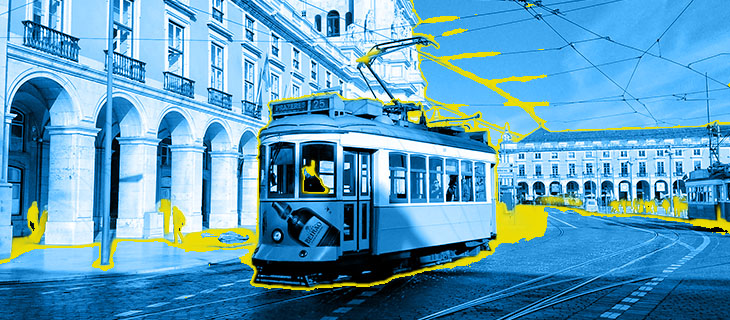
So, you’re looking to move abroad and have chosen Portugal to be your next home. Now, comes the tricky part—deciding which visa is right for you. We’re exploring the differences between the Portugal digital nomad visa vs. Portugal D7 visa to help you decide which visa is right for you!
Easiest Ways to Relocate to Portugal
Moving to a new country definitely is not easy. And we’re not just talking about integrating into a new culture and learning the language. We’re talking about the bureaucracy of actually relocating there!
In Portugal, there are two “easy” visa options for foreigners to legally relocate to the country. These are the digital nomad visa and the D7 visa.
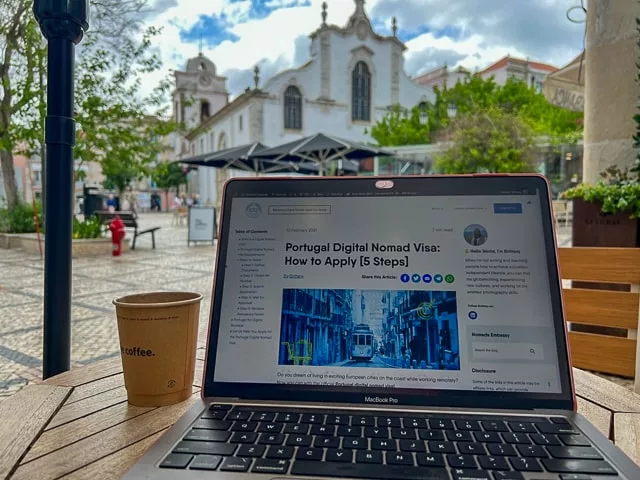
Portugal Digital Nomad Visa
Officially known as the D8 visa, the Portugal digital nomad visa was officially launched in late 2022. This visa allows remote workers and their family members to move to Portugal.
Initially, this visa is valid for four months. During this period, digital nomad visa holders may apply for a two-year temporary residence permit.
To be eligible for Portugal’s digital nomad visa, you must meet the following criteria:
- Valid Passport – Your passport must be valid at the time of applying
- Work Remotely – You must earn a remote income as a freelancer, employee, or business owner of a company located outside of Portugal
- Earn €3,680/month (after taxes) – You must meet the minimum income requirement equal to at least 4x Portugal’s national minimum wage
- Earn €5,520/month – You must meet the minimum income requirement when applying with a spouse (increased by 1,840€ for each adult dependent, this includes dependent parents as well)
- Earn €4,784/month – You must meet the minimum income requirement (increased by €1,104 per child dependent)
- Hold €11,040 in Savings – You must show the minimum amount (12 x Portugal’s monthly minimum wage) in savings
- Hold €16,560 in Savings for Couples – The savings amount increases by €5,520 per dependent adult (including spouses)
- Hold €13,248 in Savings for a Parent and Child – The savings amount increases by €2,208 per dependent child
- International Health Insurance – You will need €30,000 in health insurance coverage in Portugal, including repatriation, for the duration of your stay
- Clean Criminal Record – You must submit a certified criminal record clean of marks
- Address of Accommodations – You must present a 12-month lease in Portugal
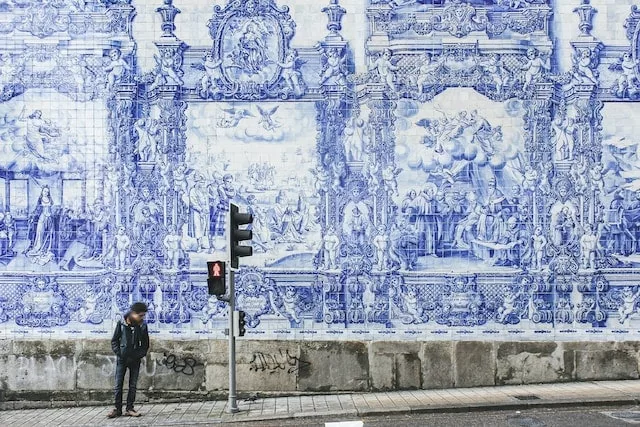
Portugal D7 Visa
The Portugal D7 visa has been around for many years and is ideal for people who earn income passively. This means their income should come from investments, rentals, dividends, or social security. Applicants may not actively work with this type of visa.
Initially, this visa is valid for four months. During this period, D7 visa holders must apply for a two-year residence permit.
To be eligible for Portugal’s D7 visa, you must meet the following criteria:
- Valid Passport – You must have a valid passport
- Earn 870€ per month in passive income – You must meet the minimum income requirement
- Earn 1,305€ per month if bringing a spouse
- Deposit 12,000€ in a Portuguese Bank Account – You must make the necessary deposit into a Portuguese bank account
- International Health Insurance – You must have international health insurance that covers you while in Portugal
- Clean Criminal Record – You must show that you have a clean criminal record
- Address of Accommodations – You must show a 12-month lease in Portugal
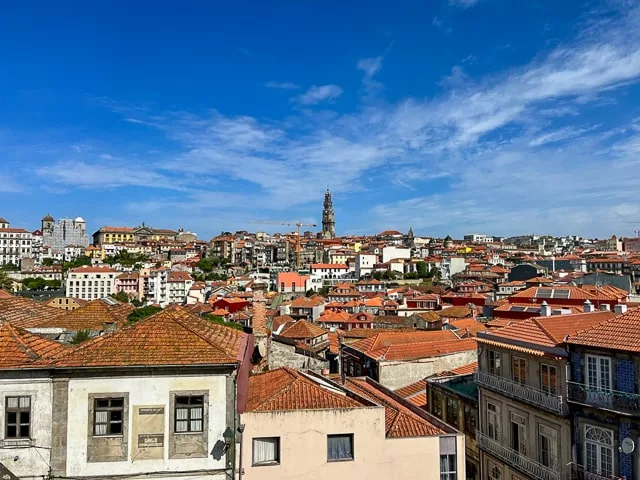
Portugal Digital Nomad Visa vs. Portugal D7 Visa
While both of these visas may seem pretty similar, there are a lot of differences when it comes to the Porgual digital nomad visa vs. Portugal D7 visa.
Income Sources
You probably understand that the Portugal digital nomad visa and D7 visa does not allow you to work in Portugal. So, you must earn your income from outside the country.
Now, the major difference between the Portugal digital nomad visa vs. Portugal D7 visa is the source of your income.
For the digital nomad visa, you must actively earn your income while working remotely as an employee, freelancer, or business owner.
For the D7 visa, you must passively earn your income through pensions, social security, dividends, rentals, etc.
| Visa | Source of Income |
| Portugal Digital Nomad Visa | Remote Work as an Employee, Freelancer, or Business Owner |
| Portugal D7 Visa | Passive Income includes dividends, pensions, rental income, etc. |
Income Requirement
Okay, so we know that the source of your income is different for the each of these visas. But the income required to be eligible either the Portugal digital nomad visa vs. Portugal D7 visa differs too!
For Portugal’s digital nomad visa, individual applicants must earn at least 3,280€ per month (after tax). This increases with each family member you include. (See the requirements earlier in this article)
For Portugal’s D7 visa, individual applicants must earn 900€ per month (after tax). This increases by 50% when including a spouse and 30% for dependent children under the age of 18. Applicants must also deposit a minimum of 12,000€ in a Portuguese bank account.
| Visa | Income Required |
| Portugal Digital Nomad Visa | 3,280€ per month (after tax) |
| Portugal D7 Visa | 900€ per month (after tax) + 12,000€ deposit |
Application Process
When discussing the Portugal digital nomad visa vs. Portugal D7 visa, we have to mention the difference in the application processes.
Did you know that the digital nomad visa is actually easier to apply for?!
So, what exactly is the difference?
For Portugal’s digital nomad visa, the application process is as follows:
- Gather and Prepare Documents
- Attend Visa Appointment at Embassy/Consulate/VFS Office in your Country of Residence
- Arrive in Portugal
- Apply for NIF Number
- Apply for Two-Year Residence Permit at AIMA
For Portugal’s D7 visa, the application process is as follows:
- Gather and Prepare Documents
- Apply for NIF Number
- Open a Portuguese Bank Account
- Deposit 12,000€ in Portuguese Bank Account
- Attend Visa Appointment
- Arrive in Portugal
- Apply for Two-Year Residence Permit at AIMA
As you can see, the D7 visa has a few more steps than the digital nomad visa.
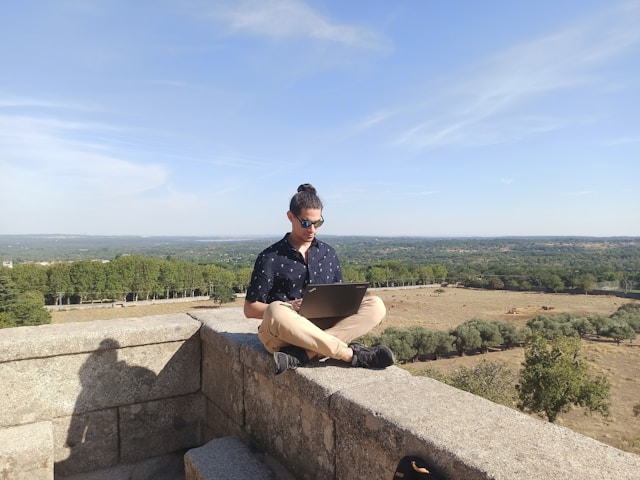
Who is the Portugal Digital Nomad Visa for?
The Portugal digital nomad visa is specifically for those who work remotely for companies and clients established outside of Portugal.
This includes remote employees, freelancers, and business owners with companies registered outside of Portugal.

Who is the Portugal D7 Visa for?
The Portugal D7 visa is for retirees and investors who do not actively work to earn their income.
Do the Portugal Digital Nomad and D7 Visas Lead to Permanent Residency?
Yes, both the digital nomad visa and the D7 visa lead to permanent residency in Portugal after five years of living in the country.
It’s important to note that minimum stay requirements are enforced to become eligible for permanent residency, though.
| Residence Permit Validity | Months Required in Portugal | Months Allowed Outside Portugal (in total) |
| 2 years | 16 months | 8 months |
| 3 years | 28 months | 8 months |

Tax Implications of Living in Portugal
Whether you apply for the digital nomad visa or the D7 visa, you will become a tax resident in Portugal.
Previously, a tax incentive program for foreigners, the NHR Program, was in place. However, this program has been modified and changed to be more selective.
When determining your taxes in Portugal, we recommend speaking to a professional tax advisor.

Portugal Digital Nomad Visa vs. Portugal D7 Visa: How to Choose
Now that we know the differences between the Portugal digital nomad visa and Portugal D7 visa, how do you choose which one to apply for?
It all comes down to your eligibility!
If you work remotely and earn at least 3,280€ per month, then the digital nomad visa is right for you.
If you are retired or earn a passive income of at least 900€ per month and can make a deposit of at least 12,000€ in a Portuguese bank account, then the D7 visa is right for you.
You may also enjoy

A new digital nomad visa has popped up for remote workers… but it’s not like traditional remote worker visas we’ve talked about before. Launched in February 2026, the Bhutan digital…
by Brittany
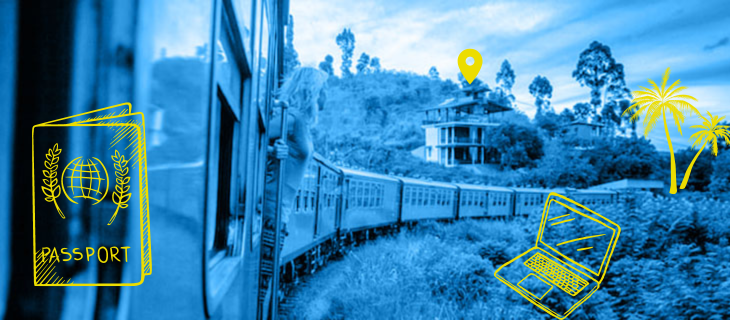
Do you dream of living and working remotely from Sri Lanka for a year? See if you can with our free Sri Lanka digital nomad visa eligibility check! Simply answer…
by Brittany

Are you planning to apply for the Portugal digital nomad visa? Then you’ll want to read about the new eligibility changes and Portugal digital nomad visa updates for 2026. Each…
by Brittany
